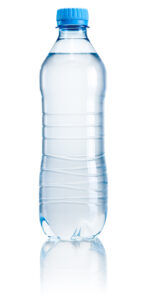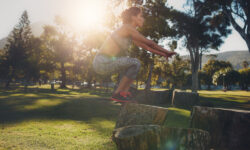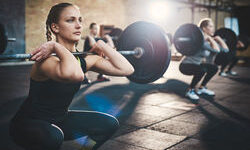Keep drinking
Here’s a New Year resolution that is worth making – to drink more. That might sound like a very attractive proposition but, just to make it clear, we are talking about the clear H2O stuff, not alcohol.
Making sure that you are adequately hydrated is vital for good health and is an essential part of your health and fitness regime. Here are a few reasons why:
Even mild levels of dehydration can affect your physical performance.
Mild to moderate dehydration impairs concentration and the ability to think clearly.
Dehydration leads to headaches.
Prolonged dehydration can lead to urinary tract infections and kidney problems, including kidney stone formation and gout. It can also lead to constipation as the bowels reabsorb every last drop of water at times of dehydration.
The lesson to be learnt is that taking constant swigs of water throughout the day can ensure we are in top condition to cope with the demands of the day, both physically and mentally.
Stay hydrated to stay slim
However, beyond all of this, water is also our ally in the fight against expanding waistlines and obesity. Research suggests that we often confuse thirst for hunger. Both sensations are emitted from the same part of the brain and most food stuffs contain an element of water so it is easy to see how the brainpan confuse thirst and hunger.
Unfortunately many of the fluids we consume today are highly calorific so we might be taking in substantial excess energy into our bodies when all we really wanted was some H2O. The best way to see if those hunger pangs are for food, or simply for water, is to take a good drink of water and if you are not craving food 20 minutes later, then you were simply thirsty.
How much is enough?
How much water is right for you is an individual matter. A popular figure bandied around is two litres over 24 hours but this might rise if you do hard physical work, cycle to work or do a lot of tough physical exercise. Your surrounding environment will also increase your levels of hydration. The best advice is to respond to your body – if you are thirsty, drink. A common check is to observe the colour of your urine: a pale straw colour is what you are looking for, darker suggest you need to drink more, while almost clear would mean you are drinking too much.
The practical stuff – hydration and exercise
Make sure you are hydrated before you exercise. If you are short of fluid before starting to exercise this will impact upon your performance. Your core temperature will rise quicker and your heart will have to work harder than usual. Being de-hydrated before you exercise can even lead to heat stroke.

During exercise it is important to keep hydrated as your muscles rely on water to function correctly. Drink little and often, rather than a lot in one go. How much you lose through sweat depends upon many factors including, size, fitness levels (fitter people tend to sweat earlier during a session and more as their bodies are accustomed to needing to cool down), environment (you sweat more if it is hotter) and intensity of exercise.
Use this calculation to work out how much you should drink to compensate for the fluid you sweat during exercise.
Weigh yourself before exercise, weigh yourself after exercise, calculate the difference.
For every kilogram you lose during exercise, drink up to a litre and a half as replacement fluid.
After exercise, the sooner you start to replace fluid, the better you will recover. And, resist the temptation to reward yourself with a pint of beer – alcohol is a diuretic which means it removes water from the body.
And with that, we wish you a happy and hydrated New Year.








